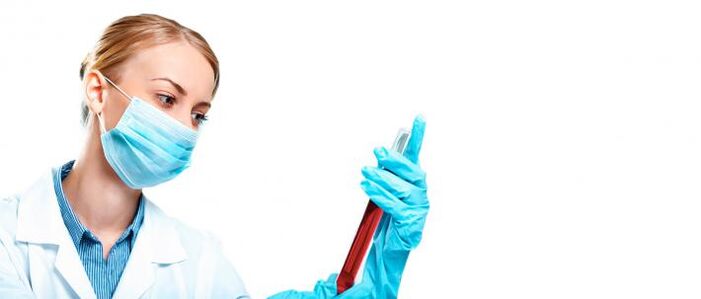
More than 250 species of different parasites can survive in the human body! According to statistics quoted by the WHO, some 4. 5 billion people are infected with parasites, and this figure includes not only residents of "third world" countries, but also more than 30% of Europe's total population. One can live in peace and have no idea that the invaders have already settled in his body. So maybe they are safe as they are not annoying? But even with this opinion in mind, you should be able to identify parasites, determine their type, and how to treat parasitosis and negligence.
Why can parasites start?
How do parasites appear in the human body, after all, they cannot come from the air? In fact, the mechanism of infection is simple - most often unwashed hands become the cause of the infection, from where the larvae enter the gastrointestinal tract (gastrointestinal tract) where they successfully become adults and remain in the human body, safely devouring everything that is most valuable. including: vitamins and minerals. . .

In some cases, the parasite reaches humans through sexual contact. Thus, it can become infected with trichomoniasis, pinworms and ploshchitsy (commonly known - pubic). There is a high risk of infection due to pets and personal hygiene items (dishcloths, towels).
It is easy to see that the cause of parasites in the body is quite prosaic. In most cases, children are infected unless the infection naturally spreads through sex.
We figured out the reasons, now we find out what signs of parasites are in the body that you need to start treatment.
How to determine the presence of parasites in the body?
If the vital activity of "neighbors" is asymptomatic, certain signs of parasites can still be detected in the human body without special diagnosis. These signs are:
- Bloating;
- Bloating;
- Constipation;
- General weakness because the body does not receive important substances, so it supplies them with parasites;
- In women, white discharge suggests trichomoniasis;
- Developmental delay in children;
- Appearance of allergic rashes and dermatitis on the skin;
- Mental exhaustion with persistent infection.

Although these signs are only indirect signs of the presence of parasites, they can be powerful causes for a complete diagnosis.
Clinical diagnostics
For many years, the diagnosis of parasites in the human body was limited to the analysis of feces for the presence of earthworm eggs. This approach allowed the infection to be determined only in the last stage of the disease. Currently, diagnostics have improved significantly. Today, this type of research is used to identify parasites in the body:
- ELISA or enzyme-linked immunosorbent assay. It allows the detection of the presence of appropriate antibodies;
- Blood testing;
- ART - vegetative resonance test;
- Bioresonance therapy.
Private clinics are offering more and more new methods and tools for diagnosing parasitosis, so it is very important to seek the advice of an immunologist. The specialist will tell you how to control parasites in the body in the most informative way.
It is very important to identify the presence of parasites in time, their long-term stay in the body can have a detrimental effect on human life. Often, the infection is fatal.

Are all parasites harmful to humans?
Recently, scientists have begun to study the relationship between autoimmune disorders and the vital activity of parasitic worms. The conclusions of American researchers shocked me!
It has been found that parasites in the human body can also be beneficial by stimulating the immune system.
For many centuries, humans have lived with parasites, forming a peculiar symbiosis. Now that the number of people infected has dropped significantly, people are more prone to autoimmune diseases.
Useful parasites in the human body activate their own immune regulation, resulting in double protection for the host. Thus, intestinal worms are able to suppress the inflammatory processes in the body. Research into this relationship continues to this day. It is impossible to predict what other discoveries will be made.
Types of parasites
All parasites in the human body are conditionally divided into subgroups according to the nature of their effects on the body. Types of parasites in the human body and symptoms and treatment of parasites in the human body:
| Names of parasites in humans | Adverse effects | Symptoms | How to kill parasites in the body | Mechanism of infection |
| Helm samples | They have a depressing effect on the intestinal microflora. They disrupt metabolism and prevent the absorption of nutrients. | Rash, enlarged lymph nodes, liver and spleen, jaundice, fever. | Many special anthelmintic drugs are used for the treatment. | Food, through common hygiene items, as a result of close contact with animals. |
| Roundworm | They cause the development of many diseases of the intestines, gallbladder and lungs. | Low fever, diarrhea (in the initial stages), dry cough, acute allergic reactions. | Parasites die on their own after a year because they are unable to multiply in the body. Anthelmintics are used during treatment. | Due to poor hygiene. |
| Mushrooms | They can be the cause of oncological diseases. | White plaque on the mucous membranes, redness and peeling, itching of the affected area. | The treatment depends on the location of the fungus. Antifungal drugs are marketed in the form of ointments, medicated shampoos and special treatment solutions. | Transmitted through general items. Healthy areas of the infected are affected. |
| Pinworms | It has a detrimental effect on the intestines. | Itching in the rectal area, allergies, nausea and vomiting. | It is treated with anthelmintic drugs. | Failure to observe personal hygiene, including food. |
| Giardia | It affects the liver of the farmer. | Indigestion, intermittent fever, diarrhea. | Enzyme preparations, choleretic, antibiotics. Antihistamine treatment. | Through household items, including food. |
| Chlamydia | They contribute to the development of diabetes and infertility, destroy the liver and affect the pancreas. | Almost asymptomatic in women - urination may become more common. In men, it manifests as urination, white discharge, and pain when urinating. | AntibioticsThe treatment of a sexual partner is mandatory. | Unprotected sex. Rarely - through personal hygiene items. |
| Trichomonas | They affect the oral cavity, causing disorders of the urogenital system and intestines. The host's vascular system also suffers. You can provoke oncology. | Cuts during urination, foaming secretions from the external genitals of men and women. | Antibiotics, immunomodulators, enzymes. Topical external treatment: women with vaginal disinfection well, men with antiseptic solution. | Sexually transmitted infection. |
| Toxoplasma | It affects the mucous membranes, causing disorders of the urogenital system and intestines. Long-term "coexistence" involves mental retardation. | Asymptomatic or disguised for various diseases. A full examination revealed it. | Etiotropic therapy, immunomodulators, antihistamines, toxoplasma therapy. | Through meat and vegetables. When a pregnant woman becomes infected, the baby becomes infected inside the womb. Infection of domestic cats. |
| Fascioliasis | May cause hepatitis and allergic reactions. | Allergic symptoms underlying general malaise. The chronic form is characterized by liver pain. | Antihistamines, calcium chloride. If complications develop, hepatitis is treated. | Through meat, unwashed herbs and untreated water. |
This list of parasites in the human body will help you when to see a doctor. An infectious disease specialist will prescribe treatment depending on the type of parasite in the human body. You should not postpone a meeting with your doctor and wait for complications - any disease is easier to cure in its initial stages.
























